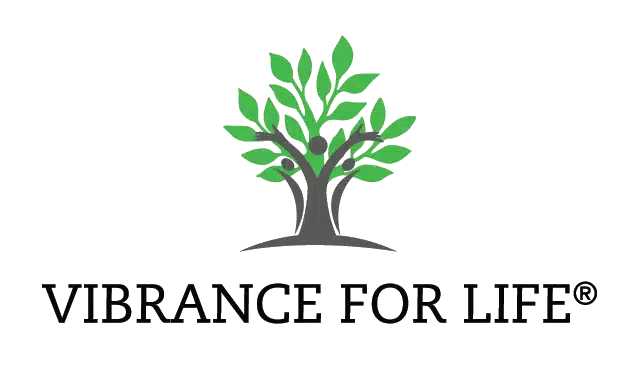Featured
I hear the same thing very often and patients ask me: “Why can’t I lose weight? I am eating healthy and exercising and the weight just doesn’t budge. You’re not the only one who has been having trouble with weight gain during perimenopause or menopause, even though you’re doing “all the right things.”
This time of life brings unique challenges, both physically and emotionally, because of changes in hormones. Even women who have never had trouble with their weight may notice those extra pounds coming on. And for people who are already overweight or obese, it can feel like a never-ending fight.
This is what happens in menopause and perimenopause which can start 10 years before menopause. I will share with you what works during this transition when your hormones seem to be working against you.
Hormonal Changes in Midlife
Fluctuating hormones, hormone resistance and drop in estrogen and progesterone are some of the changes that happen during perimenopause and menopause. This sets off a chain reaction that affects almost every part of your metabolism.
- Insulin resistance goes up—which makes it easier to store fat, especially around the belly. This abdominal fat is ameliorated by hormone therapy. HRT also improves improved insulin sensitivity and a lower rate of development of type 2 diabetes. perimenopause is associated with a more rapid increase in fat mass and redistribution of fat to the abdomen 1
- Muscle mass decreases: Loss in estradiol is still believed to be the most important contributor in menopause-associated loss of muscle mass. Estradiol also reduced skeletal muscle protein breakdown markers.2
- Cortisol levels go up, partly because of sleep problems, 3age and hot flashes. Cortisol is associated with weight gain and belly fat as well as metabolic dis-stress that puts you on a blood sugar roller coaster and makes you store even more fat. more fat.4
Your hormones or lack of hormones are working against you when you try to lose weight and traditional weight loss advice won’t work the same way anymore if you don’t fix the hormone imbalances and metabolic changes that are causing them.
Emotional Roller Coaster
Mood swings are common due to fluctuating hormones and this is also a time of life that women must adjust to many life as well as hormonal changes. They are dealing with empty nests, aging parents, changing careers, and changing relationships, all while living in a culture that still values women for being young and thin.
The feeling of being overwhelmed is real. It’s hard to find the energy or focus to change your life when you feel like you’re on an emotional roller coaster with sleep disruptions, blood sugar swings and seeing your mind and body change.
Musculoskeletal Pain
Another thing that people often forget about is what is now being called the “musculoskeletal syndrome of menopause.” More than 70% of menopausal or perimenopausal women will experience musculoskeletal symptoms and 25% will be disabled by them due to fluctuations in estrogen. Studies show that women have more aches, pains, joint stiffness, and even cartilage breakdown as their estrogen levels drop. 5All of these things make it harder to stay active which makes it harder to lose weight.
Learn to Be Heard to Get Right Treatment
A common but harmful myth in medicine is that your symptoms are “just part of aging” and you should deal with them.
Your symptoms are real, valid, and can be treated.
Many health care practitioners are not trained to recognize or treat perimenopause or menopause. In fact only 6% of just 6.8% of obstetrics and gynecology, family medicine, and internal medicine residents felt adequately prepared to manage the health care needs of women experiencing menopause.6 Only 31.3% of ObGYN residents reported having a menopause curriculum in their residency program and 83% of program directors agreed that their programs needed more menopause educational resources. 7
Because of this lack of training, healthcare professionals may not be aware of the new studies that show that the benefits of hormone therapy outweigh the risks. They may not be comfortable treating women in perimenopause or menopause .
If that is the case, you may be drugged or dismissed due to old fears from old studies or the lack of education on the safety and benefits of hormone therapy. You can educate yourself and share the studies with your healthcare provider. A good place to start is the course: Is Hormone Replacement Therapy Right for You? You can get up to date studies to bust myths as well as self-assessments and what to expect if you decide to have hormone replacement therapy.
How to lose weight in menopause – What Works? A root-cause, integrative approach
1. Hormone Balancing (MHT, HRT, BHRT)
When used safely, Bioidentical Menopausal (or perimenopausal) Hormone Therapy (MHT) can help with a lot of different symptoms, like sleep disturbance, pain, anxiety, depression, hot flashes, insulin resistance, and vaginal dryness. It can help with the 70 symptoms of perimenopause and menopause that are affected by your hormones. It doesn’t get talked about or used enough, but it can be a huge help when prescribed correctly.
2. More Protein
It’s important to get enough protein, not just for keeping your muscles strong but also for feeling full, building bone and keeping your blood sugar stable. Most women in their 40s and 50s need about 1 to 1.2 grams of protein per kilogram of body weight every day, which is a lot more than what is usually recommended.8,9
Eating more protein naturally makes you want junk food less (the “protein leverage effect”) and helps keep your energy, mood, and metabolism stable.
3. Build Muscle
While your goal may be to lose weight, building muscle mass is essential to burn calories, build bone, manage metabolic issues such as high blood sugar, insulin resistance, high blood pressure, mood swings and restore energy. Exercise can prevent or positively affect many conditions and may also improve sleep. It’s best to do both strength training and moderate cardio.
Especially if you are new to strength training, start low, go slow and work with a trainer to ensure proper form. Don’t ignore pain. If joint pain or inflammation is getting in the way see a physical therapist to determine what is best for you. You should be able to move your body in a way that feels good and helps you reach your goals.
4. Sleep More and Stress Less
Stress and lack of sleep can make it hard to balance hormones and stick to any weight loss plan. Tools such as Heartmath, breathing or vagal exercises, supplements, cognitive behavioral therapy for insomnia, and saying no to the non essential things on your to do list as well as setting limits can all impact your stress and sleep.
The Vitality Formula
Small changes can make a big difference. Pick something to add, subtract or multiply
- Add an extra serving of high quality protein and vegetables, add more weight to your workout or add an extra 15 minutes of sleep.
- Subtract some non-essential items on your to do list, say no or delegate, subtract processed food and sugar from your diet or audit your personal care products and remove and replace products with toxins with safer, cleaner products.
- Multiply your movement with exercise snacks or a program that you enjoy, multiply laughter and joyful activity as well as social connections that slow aging.
- Divide your day between doing and being. Learn how to relax and find joy.
Progress over Perfection
It is not realistic to strive to be perfect and then beat yourself up for not doing everything or everything “right.” Be kind, compassionate and forgiving to yourself. You are not broken if you have been having trouble with your weight, being tired, mood swings, or just not feeling like yourself anymore. You are going through a change. Know that there is hope and help so you can feel good again.
You can get your energy, clarity, confidence, and control back with the right help, advice, and science-based plans. Consider applying for a no obligation clarity call to see if we are a good fit. A holistic approach to weight loss and hormone balance can have far reaching benefits that go way beyond looking and feeling good in your clothes. Your mind, body and spirit can soar with the right approach.
Let’s get you back to yourself so you can Feel Good Again
References
- Davis SR, Castelo-Branco C, Chedraui P, et al. Understanding weight gain at menopause. Climacteric. 2012;15(5):419-429. doi:10.3109/13697137.2012.707385
- KO J, PARK YM. Menopause and the Loss of Skeletal Muscle Mass in Women. Iran J Public Health. 2021;50(2):413-414. doi:10.18502/ijph.v50i2.5362
- Cohn AY, Grant LK, Nathan MD, et al. Effects of Sleep Fragmentation and Estradiol Decline on Cortisol in a Human Experimental Model of Menopause. J Clin Endocrinol Metab. 2023;108(11):e1347-e1357. doi:10.1210/clinem/dgad285
- Woods NF, Mitchell ES, Smith-DiJulio K. Cortisol Levels during the Menopausal Transition and Early Postmenopause: Observations from the Seattle Midlife Women’s Health Study. Menopause. 2009;16(4):708-718. doi:10.1097/gme.0b013e318198d6b2
- Wright VJ, Schwartzman JD, Itinoche R, Wittstein J. The musculoskeletal syndrome of menopause. Climacteric. 2024;27(5):466-472. doi:10.1080/13697137.2024.2380363
- Kling JM, MacLaughlin KL, Schnatz PF, et al. Menopause Management Knowledge in Postgraduate Family Medicine, Internal Medicine, and Obstetrics and Gynecology Residents: A Cross-Sectional Survey. Mayo Clinic Proceedings. 2019;94(2):242-253. doi:10.1016/j.mayocp.2018.08.033
- Allen JT, Laks S, Zahler-Miller C, et al. Needs assessment of menopause education in United States obstetrics and gynecology residency training programs. Menopause. 2023;30(10):1002-1005. doi:10.1097/GME.0000000000002234
- Chen X, Fu Y, Zhu Z. Association between dietary protein intake and bone mineral density based on NHANES 2011–2018. Sci Rep. 2025;15(1):8638. doi:10.1038/s41598-025-93642-w
- Korat AVA, Shea MK, Jacques PF, et al. Dietary protein intake in midlife in relation to healthy aging – results from the prospective Nurses’ Health Study cohort. The American Journal of Clinical Nutrition. 2024;119(2):271-282. doi:10.1016/j.ajcnut.2023.11.010
 Lorraine Maita, MD, CEO & Founder of The Feel Good Again Institute and Vibrance for life and widely known as “The Hormone Harmonizer”, has helped thousands of people ditch fatigue, brain fog, mood swings, lose weight, and achieve balanced hormones so they Feel Good Again.
Lorraine Maita, MD, CEO & Founder of The Feel Good Again Institute and Vibrance for life and widely known as “The Hormone Harmonizer”, has helped thousands of people ditch fatigue, brain fog, mood swings, lose weight, and achieve balanced hormones so they Feel Good Again.
She is a recognized and award-winning triple board certified, holistic, functional, integrative and anti-aging physician, speaker and author, and has been featured in ABC News, Forbes, WOR Radio and many media outlets to spread the word that you can live younger and healthier at any age.




